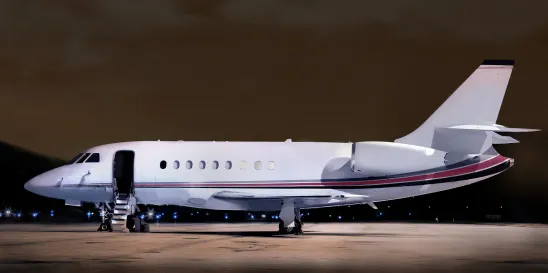On Feb. 21, 2024, the Internal Revenue Service (IRS) announced it would begin auditing the use of business aircraft “by large corporations, large partnerships, and high-income taxpayers and whether for tax purposes the use of jets is being properly allocated between business and personal reasons.” The IRS is focusing its efforts on business deductions for aircraft expenses when the aircraft is also used for non-business purposes. This campaign is part of the IRS’s recent focus on large corporations, large partnerships, and high-income taxpayers in an effort to improve tax compliance. The IRS expects the number of aircraft-related audits to increase based on results from the current campaign. Aircraft owners and operators should consider proactively auditing their business aircraft use.
While the current audit’s focus is on the eligibility of company aircraft for certain business deductions, the IRS may also begin reviewing and auditing individual taxpayer returns to ensure the taxpayer is properly reporting income related to personal use of corporate aircraft. The IRS stated that “[u]se of the company jet for personal travel typically results in income inclusion by the individual using the jet for personal travel…” Consequently, the current IRS focus on company aircraft may have an impact at both the company level (potential loss of previously claimed deductions) and the personal level (imputation of income based on reclassification of travel previously claimed as business related).
The 2017 Tax Cuts and Jobs Act allowed business aircraft owners to fully depreciate up to 100% of the cost of their aircraft in the first year of ownership. However, the option to elect depreciation (100% “bonus depreciation” or otherwise) is predicated on the aircraft being operated for a clear and documented business purpose. Proper recordkeeping and documentation are critical when dealing with any federal agency and doubly important when claiming expansive tax benefits on assets such as business aircraft.
With the IRS’s announcement, business aircraft owners and operators should review the ownership and operating structures of their aircraft to verify compliance with applicable tax laws, to ensure that current operations are within the contours of Federal Aviation Administration (FAA) rules and regulations and to confirm they are keeping adequate records to enable the company to defend its position in a potential tax audit. Attempting to, in the words of the IRS, “fly under the radar,” may be an invitation for a visit from the IRS and the FAA.
Aircraft owners and operators and taxpayers who utilize business aircraft should consult with experienced legal counsel to review operations and procedures and prepare for possible IRS audit scrutiny.




 />i
/>i
